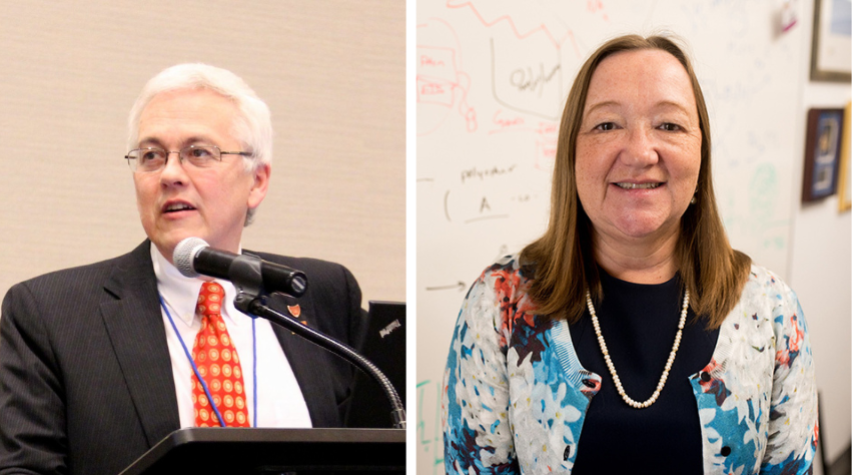
The 2022 AIChE Annual Meeting will take place on November 13–18, 2022 at the Phoenix Convention Center in Phoenix, AZ. The Annual Meeting is the premier educational forum for chemical engineers interested in innovation and professional growth. This year's theme "Powering the Future" will feature academic and industry experts that will cover a wide range of topics relevant to cutting-edge research, new technologies, and emerging growth areas in chemical engineering.
On Sunday, November 13th at 3 PM MST, AIChE will feature a session on the National Academy of Engineering (NASEM) consensus study "New Directions for Chemical Engineering" co-chaired by Phil Westmoreland, Professor of Chemical and Biomolecular Engineering at North Carolina State University and 2014 AIChE Past President, and Joan Brennecke, Professor of Chemical Engineering and Cockrell Family Chair in Engineering at the University of Texas. The full study report can be downloaded free from the National Academies Press.
We recently got a chance to catch up with Dr. Westmoreland and Dr. Brennecke to learn more about their session.
What does the NASEM study cover?
PW: A team organized by the National Academies developed a U.S. vision of chemical engineering's future development and new directions. It discussed these visions using broad categories where chemical engineers are making advances, including energy and decarbonization, environmental sustainability, medicine, flexible manufacturing and the circular economy, materials, enabling tools, and education.
The study was encouraged by AIChE’s Research and New Technologies Committee (RANTC) and funded through the collective support of the National Science Foundation, Department of Energy, ACS, AIChE, companies, and universities.
What kinds of topics were discussed under these categories?
JB: For example, sustainability topics focused on food, energy, water, air, and their interconnections, technical and otherwise. Similarly, enabling tools remarked on opportunities coming from increased development and use of data science, simulation, and new instruments and sensors, all of which will impact R&D while "digitalizing" manufacturing in the chemical process industries.
What were the big takeaways?
PW: Different things for different people. Several of the chapters envision advances for oil & gas and bio-derived chemicals. More and more chemical engineers are involved in medical science, pharmaceuticals, and health care. Chemical engineers have the ability to apply physics and molecular sciences, and to also apply simulation and data science. Likewise, we are creating novel and improved polymers, ceramics, composites, bio-derived materials, and electronic materials and ways to make them. One common theme is finding new ways to learn these new ideas and tools. This applies to new chemical engineering students, and also as our careers progress, it really provides a place where AIChE can contribute.
How will the Annual Meeting session examine these ideas?
JB: Eric Kaler, chair of the NASEM study and president of Case Western Reserve University, will first provide an overview of the study. Four panelists, independent of the study committee, will then remark briefly on the study's findings: Cato Laurencin, Jodie Lutkenhaus, John Siirola, and Jean Tom. At the end of the session, the full panel will address comments and questions from the audience.
Join the conversation on Twitter and Facebook | #AIChEAnnual.
Phil Westmoreland
Westmoreland was 2013 AIChE President; is a Trustee and past president of the educational nonprofit CACHE Corporation; and was founding Chair of AIChE’s Computational Molecular Science and Engineering Forum. He is a Fellow of AIChE. Read more.
Joan Brennecke
Brennecke’s research interests are primarily in the development of less environmentally harmful solvents. In particular, her research has focused on the development of ionic liquids for a variety of chemical separations. Read more.


